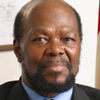01 Oct 2007 Congressional Black Caucus Shortchanging Poor and Minority Energy Consumers, by Roy Innis
 A recent Congressional Black Caucus Foundation conference featured an “energy braintrust” that promised a lively three-hour discussion by oil company, association, government agency and university executives to “transform dialogue into action” and “bolster the relationships between the energy industry and African-American community.”
A recent Congressional Black Caucus Foundation conference featured an “energy braintrust” that promised a lively three-hour discussion by oil company, association, government agency and university executives to “transform dialogue into action” and “bolster the relationships between the energy industry and African-American community.”
Sadly, session moderator Representative Sheila Jackson Lee (D-TX) squandered the opportunity. She knows the oil business and recognized that “energy is the foundation of our economy, the engine that drives the world.” She arrived 40 minutes late, however, posed for photos and then bemoaned oil industry shortcomings. By the time she introduced the speakers, the session was half over.
The very first panelist noted that many “public policy barriers” restrict exploration, production and delivery of needed energy. Several said more minorities and minority businesses must be involved in the energy industry. Others noted U.S. laws and policies raise energy prices, make excellent prospects off-limits to drilling and reduce opportunities for businesses and employment.
Representative Lee did not pick up on any of these critical issues. Instead, she nodded as her “good friend,” the CEO of CITGO Petroleum, extolled Hugo Chavez and offered platitudes about “building bridges” between Venezuela and poor U.S. communities.
After each talk, Representative Lee frittered away more time introducing other “good friends” in the audience – and her son, who “needs a job.” The session ended with virtually no attempt or time to analyze the shortcomings of current U.S. energy policies.
An hour later, presidential aspirant Senator Barack Obama (D-IL) declaimed climate change as the most serious threat facing African-American families, and “environmental justice” demands that factories not be built in minority communities because they might pollute.
The message was a politically correct regurgitation of Democratic Party and Sierra Club talking points. It was the same deficient analysis that brought us child welfare mothers “raising” children in fatherless families, schools ruled by incivility and violence and uneducated youths suited for gangs but not for jobs.
Black America cries out for thoughtful leadership. We hunger to embrace a strong black candidate for national public office. Instead, the Congressional Black Caucus marches in lockstep with activists and legislators whose policies are disastrous for low-income and minority families.
Energy is the “master resource” on which everything else depends. Abundant, reliable and affordable electricity, natural gas and transportation fuels make our jobs, health and living standards possible. They are the great equalizer – the creator of economic opportunities and true environmental justice.
Lock those resources up – cripple our energy sector with taxes, over-regulation and ill-advised laws that make heating, driving and manufacturing more costly – and the poor suffer most. Destroy jobs, or make poor families pay an ever-larger portion of their meager incomes for energy, food and clothing and the hard-won victories for civil rights are quickly reversed.
Keep businesses out of neighborhoods blighted by slum dwellings and brownfields and you take away jobs, health insurance, a stronger tax base for schools, environmental clean-ups and a chance for the American Dream. Lock up oil, gas and coal prospects and there will be fewer job opportunities even in companies that are committed to diversity.
The Kyoto Protocol would reduce average global temperatures by 0.2 degrees Celsius by 2050. Pending congressional bills might achieve a 0.05 degree Celsius reduction – assuming CO2 drives climate change, which numerous scientists doubt. These symbolic gestures would raise energy prices for no environmental benefit.
America could get 20 billion gallons of gasoline a year from an area 1/20 the size of Washington, DC in Alaska’s Arctic National Wildlife Refuge. Instead, lawmakers exult over getting 5 billion gallons of ethanol from an area the size of Indiana and using some 4 billion gallons of fossil fuel to grow, harvest, process and transport the corn. Some want 15 billion barrels of corn-ethanol by 2022.
Legislators, regulators, judges and pressure groups have made a decade’s worth of oil and natural gas off-limits. They’ve helped drive up energy costs more than $1,000 per family since 2000 and caused every barrel saved through efficiency and conservation to be offset by oil locked up on questionable ecological grounds.
These energy deniers want to shackle the fossil fuel system we have and replace it with a utopian system that isn’t even on the drawing boards.
This isn’t energy policy or environmental justice. It’s feel-good grandstanding. It would replace our free enterprise system with one based on government dictates, mandates, subsidies and decisions about which companies, technologies and lobbyists win – and how much more consumers must pay.
These issues demand serious and robust debate, but these black lawmakers aren’t even asking the right questions much less providing leadership and challenging dominant liberal dogmas. The path it is taking betrays the gains that generations of civil rights champions fought so hard to achieve.
# # #
Roy Innis is national chairman of the Congress of Racial Equality, one of America’s oldest and most respected civil rights groups. Comments may be sent to [email protected].
Published by The National Center for Public Policy Research. Reprints permitted provided source is credited. New Visions Commentaries reflect the views of their author, and not necessarily those of Project 21 or the National Center for Public Policy Research.
 |



